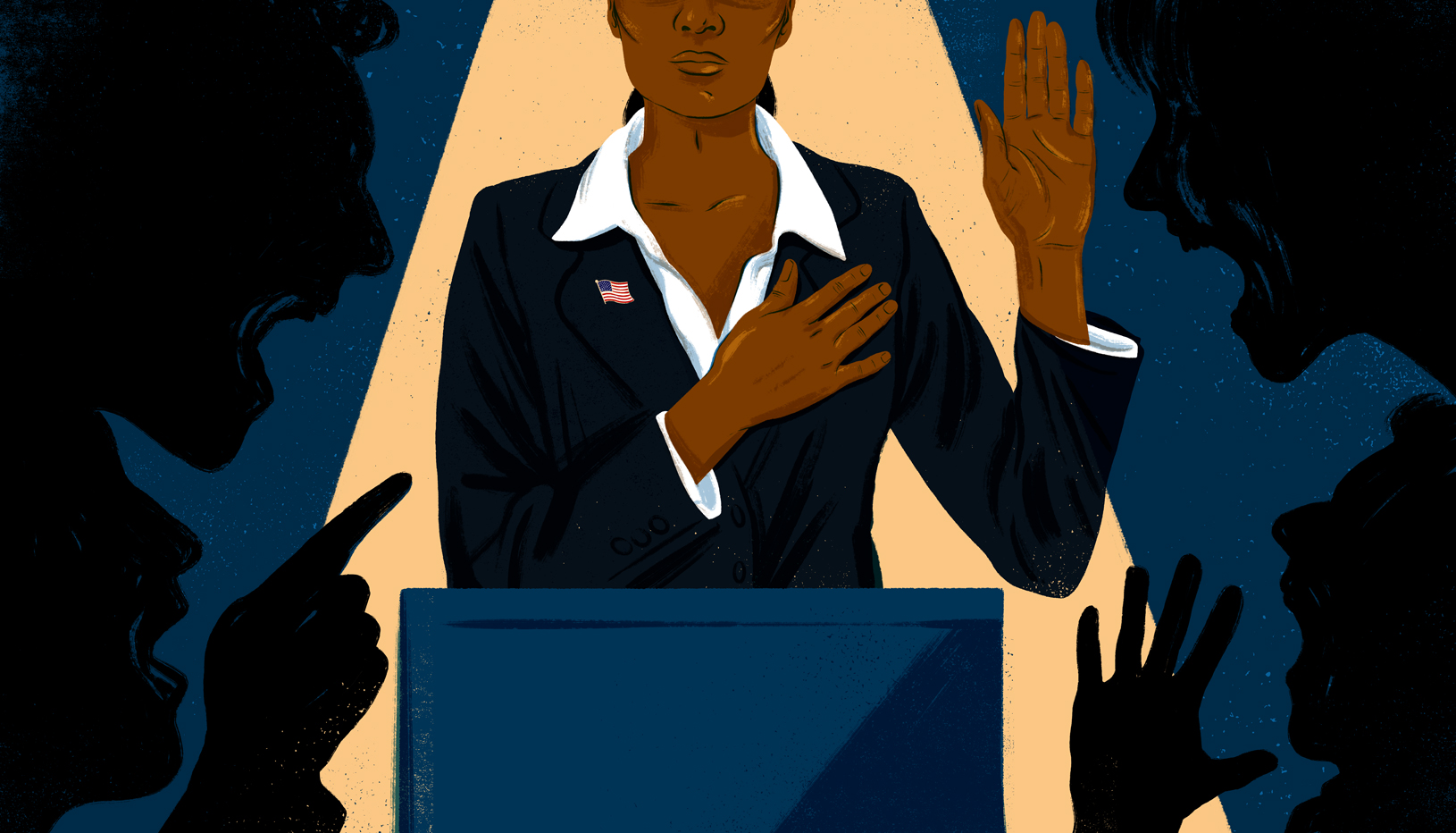Since 2000, the number of Latinos in any elected office has nearly doubled. In 2022, voters sent a record number of Latinos to Congress. The midterms also saw the largest class of Latinos serving in statewide executive office and the reelection of the nation’s first Democratic Latina governor.
Despite these historic gains, fewer than 2 percent of elected officials are Latino — a community that makes up almost 20 percent of the U.S. population. And one reason, increasingly, is fear. More and more, people are afraid to run for office — actually afraid, not of losing but of putting the safety of their loved ones and themselves in real danger.
Potential candidates voice many concerns about running, such as fundraising and the relentless schedule. But they’ve also seen the headlines, which have only seemed to increase in recent weeks.
On January 3, 19 state capitols were evacuated due to bomb threats. Incidents of “swatting,” fake 911 calls that send law enforcement to someone’s home, are on the rise. Authorities recently arrested a man who threatened to kill Rep. Eric Swalwell (D-CA) and his young children.
This is why I’m glad to serve on the advisory council for a new report by the Brennan Center that documents how this violence goes beyond January 6 and Capitol Hill and how it’s impacting the health of our democracy. Research shows that 43 percent of state legislators and 18 percent of local officeholders report experiencing threats of harm in the past couple of years. The ramifications are serious: nearly 40 percent of local officeholders say that abuse lessens their desire to run for reelection.
This crisis is particularly concerning for groups that are already underrepresented in government.
Almost half of the current Congress previously served in state legislatures; these roles provide a crucial pipeline to political newcomers. If our community leaders are afraid to launch their political careers in local and state races, our national representation will suffer, too.
Latinos make up the second-largest voting bloc of the U.S. electorate. Our nation’s political leaders should reflect the communities they serve. As executive director of Latino Victory Fund, I recruit and support candidates so that the voices and values of Latinos are included at every level of government.
Equal opportunity doesn’t just matter for the sake of inclusion. Unaddressed abuse harms all voters, because policymaking by more representative legislatures better serves all of us.
No matter the party or background, all voters benefit from making sure that future leaders are not deterred from serving out of fear to their personal safety, and that current leaders are not afraid to speak their minds. We need the best and brightest in order to live out our democracy’s promise.
Solutions exist. Officeholders, business and community leaders, and other members of the public should call out threats and harassment when they see it. A bipartisan condemnation of abusive behavior would go a long way in ensuring that officeholders can spend more time talking about policy and less time worrying about protecting their loved ones from potential violence.
Social media companies can also do their part by updating their policies to reduce serious harm online.
We will all benefit from a democratic process that is free from intimidation. Political violence shows no signs of diminishing on its own. We must act to ensure a safe, accessible, and representative democracy for all.
Sindy Benavides is executive director of the Latino Victory Fund.
This article was originally published in Spanish by La Opinión.








